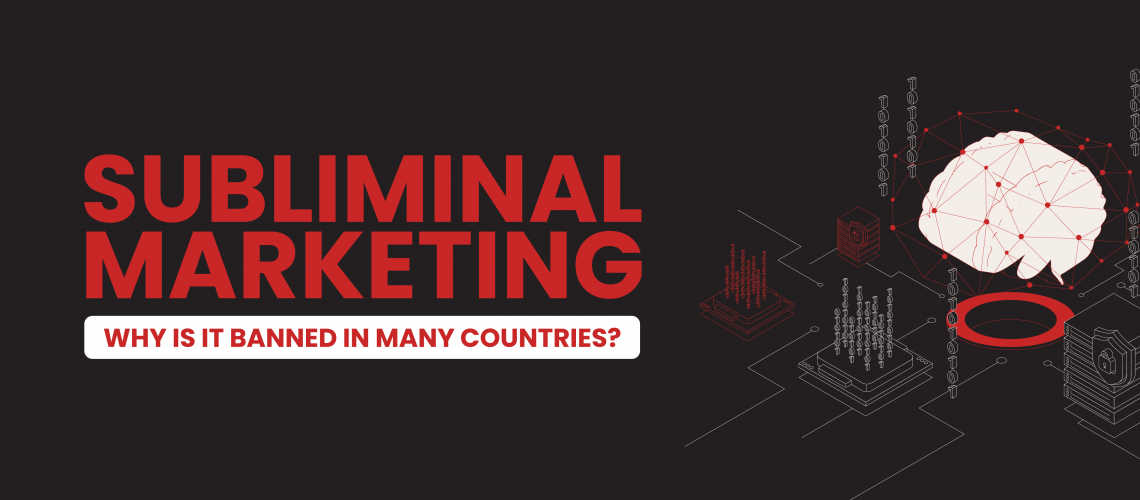Subliminal marketing is the use of stimuli that are below the threshold of conscious perception, such as images, sounds, or messages. These stimuli are intended to influence the behaviour and attitudes of consumers, often in subtle and unconscious ways. The term “subliminal” means “below the threshold,” indicating that these marketing messages are not consciously perceived by consumers.
Subliminal marketing refers to the use of subtle and often subconscious cues or messages to influence consumer behaviour. Here are the three main points of subliminal marketing:
- Hidden messages: Subliminal marketing often involves embedding hidden messages or symbols in advertisements, packaging, or other marketing materials that are not consciously perceived by consumers. These hidden messages can be visual or auditory, and they may convey a particular emotion, idea, or association that the marketer wants the consumer to associate with the product or brand. For example, a popular soda company once placed an advertisement that showed an ice-cold can of soda with the subliminal message “Thirsty? Buy Pepsi” flashed briefly on the screen. This advertisement aimed to influence the viewer to associate Pepsi with thirst and purchase the product.
- Priming: Subliminal marketing may also involve priming, which refers to the use of stimuli to activate particular mental states or associations in consumers that may influence their subsequent behaviour or decision-making. For example, an advertisement for a luxury car may include images of a beautiful mansion or an expensive watch to prime consumers to think about wealth and luxury.
- Sensory cues: Subliminal marketing may also involve the use of sensory cues, such as smells, sounds, or textures, to influence consumer behaviour. For example, a retailer may use a particular scent in their stores to create a relaxing or welcoming atmosphere that encourages customers to linger and make a purchase.
The great debate surrounding subliminal marketing
Critics of subliminal marketing argue that it is unethical and manipulative, as it seeks to influence people’s behaviour without their knowledge or consent. They argue that subliminal advertising takes advantage of people’s unconscious desires and insecurities, exploiting them for commercial gain. In addition, critics argue that subliminal advertising can have negative effects on consumers, leading them to make choices that are not in their best interests.
However, advocates of subliminal marketing argue that it is a harmless form of advertising that can be used to promote products subtly and effectively. They argue that subliminal advertising is a form of marketing that is not meant to be the sole determinant of consumer behaviour but is instead intended to reinforce positive associations with a product. Advocates also argue that subliminal advertising can be a useful tool for companies, allowing them to reach a wider audience and promote their products in new and innovative ways.
Despite the ongoing debate, subliminal marketing remains a controversial and often misunderstood topic. While there is some evidence to suggest that subliminal advertising can have an impact on consumer behaviour, the effects are often subtle and difficult to measure. In addition, the use of subliminal advertising is often discouraged or even banned in some countries due to concerns about its potential impact on consumers and its potential to exploit vulnerable populations.
In conclusion, subliminal marketing refers to the use of stimuli that are below the threshold of conscious perception, intending to influence consumer behaviour. While the effectiveness of subliminal advertising remains a subject of debate, it is widely recognized as a controversial and often misunderstood topic. Whether it is ethical or not, subliminal marketing highlights the importance of understanding how advertisements can influence our behaviour, both consciously and unconsciously.
